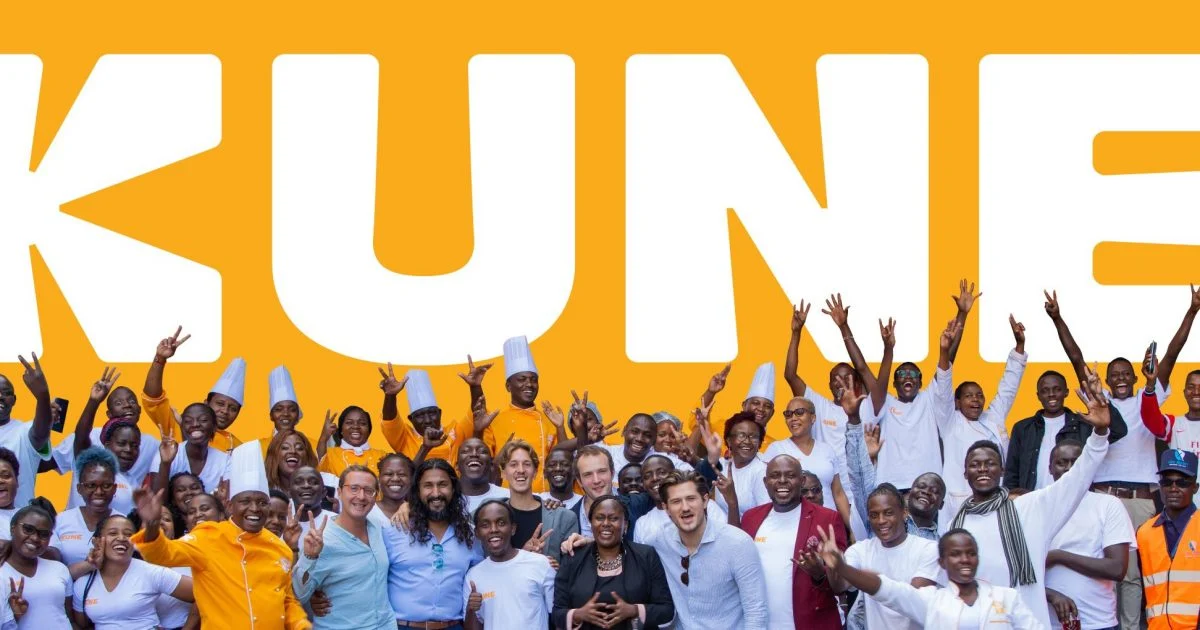Kenya’s Kune Food Shut Down Operations Barely After 10 months, Blames Hash Economic Weather

Kune Food, a Kenya-based food tech startup, announced Wednesday that it is shutting down operations.
The founder and CEO, Robin Reecht, attributed inflated food prices that have hampered the startup from raising another round since its seed round last year.
Reecht founded Kune Food in December 2020 to offer ready-to-eat affordable meals. He conducted a trial in Kenya in the early months of 2021 before officially launching the startup later that year after visiting Kenya in November 2020 and having difficulty finding affordable, ready-to-eat meals, which he described in the controversial interview with TechchCrunchw as the inspiration for the startup’s launch.
“After three days of coming into Kenya, I asked where I can get great food at a low price, and everybody tell [sic] me it’s impossible,” he said. “It’s impossible because either you go to the street and you eat street food, which is cheap but with not-so-good quality, or you order on Uber Eats, Glovo, or Jumia, where you get quality, but you have to pay at least $10,” Reecht told TechCrunch in an interview.
Kenyans offended the French and Caucasian CEO’s remarks and did not hold back in voicing their displeasure. They contended that Reecht’s ability to secure funding quickly was due to his white privilege rather than his business plan, which some thought aimed to solve a nonexistent problem. These discussions sparked a more extensive debate about white privilege, favoritism in tech, and Kenya’s neglect of local entrepreneurs.
Kune Food prepares and delivers freshly prepared meals to online customers at reasonable prices. Until recently, the startup handled everything, including delivery, but as it struggled, it relied on third-party apps such as Uber Eats, Glovo, and Bolt Food to fill orders.
Last year, the food-tech raised $1 million in a pre-seed round led by Launch Africa Ventures, with participation from Century Oak Capital GmbH and Consonance, a pan-African venture capital firm. In addition, the startup borrowed an undisclosed sum from a Kenyan bank that same year. Earlier this year, it announced plans to raise $3.5 million from local and international investors to expand its manufacturing capacity.
“We have sold over 55,000 meals and gained over 6,000 individual and 100 corporate customers since the beginning of the year. But at $3 (Ksh352) per meal, it wasn’t enough to keep us going.”
The CEO further stated, “With the current economic downturn and investment markets tightening up, we could not raise our next round. Coupled with rising food costs deteriorating our margins, we couldn’t keep going,”
Kune Food was hoping to increase production capacity and expand its operations beyond Kenya’s capital, Nairobi, until this shutdown, which affects 90 employees, some of whom were recently hired as recently as last month. It aimed to have a nationwide presence by 2024.
In a previous statement, the startup stated that “it had heavily invested in research and development to ensure it had a “fully dedicated in-house team working consistently on menu advancement to meet changing customer demands while also bridging the nutrition and price gap.” It had also set up hubs throughout Nairobi to be closer to its target client.
Addressing his employees, the CEO expressed his heartfelt condolences and urged other business owners to consider making room for them in their organizations. “My first thoughts are directed toward my team.” You poured your heart and soul into creating the Kune, which many people adored. I’m very sorry that it didn’t work out.
“To all my fellow entrepreneurs, please check the Kune “employee page” on LinkedIn and see if some of our team members can fill your recruitment needs.” I know those are trying times for you as well. But, they are fantastic people who will add tremendous value to your company. You can contact me if you require a reference for a Kune employee.”
Reecht apologized to their investors in the same statement for betraying their trust “My second thought is directed toward our investors. Some of you were there when it was just a Chef delivering Food to a nearby office on foot and me. Others later joined and helped us grow into a food tech startup with a tech platform, a factory, a kitchen studio, seven distribution hubs, 6,000 customers, and a 90-person team.”
“You not only invested in Kune, but you also gave us your time, brain power, connections, and emotional support. I am deeply disappointed that you did not realize Kune’s vision. Betraying your trust is something I will never forgive myself for,” he said.
Reecht stated that he would reflect on the startup’s failure and devise new strategies for future endeavors.
Due to the challenging economic times, several notable firms have either closed or are on the verge of closing and laying off their workforce. For example, after over five decades of operation, The Hilton announced that it would shut down on December 31, 2022.
